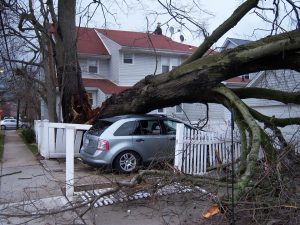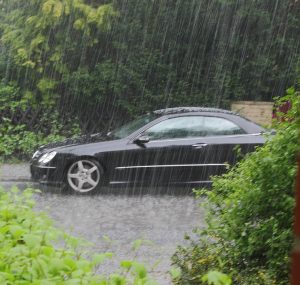 Courtesy of iii.org
Courtesy of iii.org
With burglaries constituting approximately 50 percent of all on-campus crimes, according to the National Center for Education Statistics, it is more important than ever that college students and their parents review their insurance coverage.
For students who live in a dorm, most personal possessions are covered under their parents’ homeowners or renters insurance policies. However, some home insurance policies may limit the amount of insurance for off-premises belongings to just 10 percent of the total amount of coverage for personal possessions. This means that if the parents have $70,000 worth of insurance for their belongings, only $7,000 would be applicable to possessions in the dorm. Not all insurers impose this type of limit, so check with your insurance professional.
Expensive computer and electronic equipment, sports equipment, and items such as jewelry may also be subject to coverage limits under a standard homeowners policy. If the limits are too low, a special personal property floater or an endorsement can be purchased to cover these items. There are also stand-alone insurance policies for computers and cellphones.
Students and/or their parents may also want to consider purchasing a stand-alone policy specifically designed for students living away at college. This can be an economical way to provide additional insurance coverage for a variety of disasters.
Students who live off-campus are likely not covered by their parents’ homeowners policy and may need to purchase their own renters insurance policy. Your insurance professional can tell you whether your homeowners or renters policy extends to off-campus living situations.
For students going off to college, the I.I.I. recommends the following:
- Leave valuables at home if possible
While it may be necessary to take a computer or sports equipment to campus, other expensive items, such as valuable jewelry, luxury watches or costly electronics, should be left behind or kept in a local safety deposit box. - Create a “dorm inventory”
Before leaving home, students should make a detailed inventory of all the items they are taking with them, and revise it every year. Having an up-to-date inventory will help get insurance claims settled faster in the event of theft, fire or other types of disasters. - Engrave electronics
Engrave electronic items such as computers, televisions and mobile devices, such as your smart phone, with your name or other identifying information that can help police track the stolen articles.
The I.I.I. offers the following advice to guard against theft of your personal belongings on campus:
- Always lock your dorm room door and keep your keys with you at all times, even if you leave briefly. And, not just at nightmost dorm thefts occur during the day. Insist your roommates do the same.
- Don’t leave belongings unattended on campus. Whether you are in class, the library, the dining hall or other public areas, keep book bags, purses and laptops with you at all times. These are the primary areas where property theft occurs.
- Buy a laptop security cable and use it. A combination lock that needs decoding may be just enough to dissuade a thief.
- Most campus fires are cooking related so be careful about the types of hot plates or microwaves you to bring to school, and how you use them.
In the event a student is planning to have a car on campus, choose a safe, reliable vehicle and do some comparison shopping to find the best auto insurance rate. You should also check with your own insurance company as it may offer a multi-policy discount. If you decide to keep the student’s car at home, be sure to let your auto insurance company know, as many insurers will give discounts for students who are living at a school at least 100 miles away from home.



